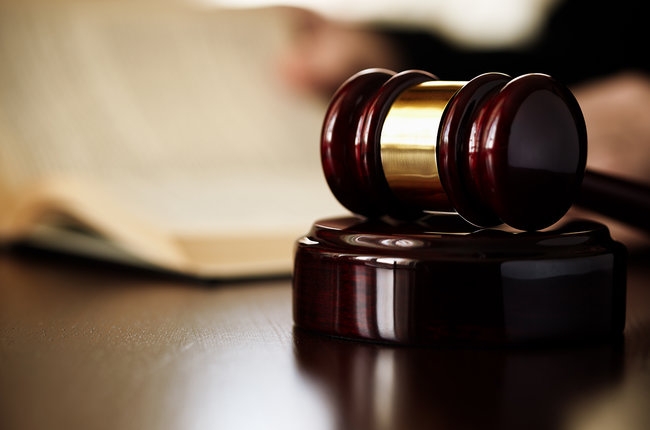A recent sale of some of its assets to Warner Music Group isn't stopping Songkick from pressing forward with its 18-month legal fight against Ticketmaster over antitrust and anti-completive allegations, a battle that now includes a potential FBI investigation into hacking allegations and a potentially make-or-break hearing scheduled for Aug. 7.
The fight comes as Songkick appears to be winding down its ticketing business in North America. Several managers tell Billboard that Songkick has notified them that the company will stop listing new tours on the platform next month and a former employee has confirmed the company laid off 26 staffers. A Songkick spokesperson declined to comment on whether the concert-discovery platform's ticketing business was still operational.
The shuttering of Songkick's ticketing operation could become a pivotal part of the case that now allegedly includes a criminal investigation. Songkick attorney Adam Wolfson disclosed the criminal probe in a June 27 court filing, reporting that Songkick "had been contacted by the FBI and the U.S. Attorney's Office for the Eastern District of New York" to investigate allegations that Ticketmaster "employees hacked into Songkick's systems and misappropriated its trade secrets." The FBI told Billboard that it "does not confirm or deny the existence of investigations."
The FBI news came as part of Songkick's lawsuit, alleging it's being blocked for providing fan club ticketing for its artists clients and accuses Ticketmaster of constantly changing its fan club policy to interfere with Songkick’s business. For its part, Ticketmaster is arguing it holds the exclusive contract for many of the venues where Songkick artists want to sell tickets.
While Ticketmaster says it does make exceptions for "legitimate" artist fans clubs, it calls Songkick a “serial violator” of the fan club policy, a charge Songkick denies. Ticketmaster has requested summary judgment in the case, hoping federal Judge Dale Fischer will dismiss part the suit at an Aug. 7, 1:30 p.m. hearing in United States District Court's Central District of California. In May 2016, Judge Fischer dismissed one of eight claims from Songkick’s original case against Ticketmaster and denied Songkick a preliminary injunction, arguing the company "failed to show virtually any likelihood of success on the merits," with "no remotely valid or persuasive antitrust analysis to back up" its claims.
As for the hacking allegations, in February, Songkick alleged that an ex-employee had accessed confidential company information while under the employ of Ticketmaster and shared it with the company’s top executives. At the time, Ticketmaster countered that the information was widely available and that Songkick didn’t make any effort to keep it secret. Billboard reached out to Live Nation regarding the FBI investigation and was told the company had no comment on the matter. Songkick also declined to comment.
On Friday, Songkick sold its discovery app and website, along with associated trademarks to Warner Music Group, the record label and music company controlled by Songkick's senior creditor Len Blavatnik's Access Industries.
"Fans all over the world trust Songkick to help them find events featuring the artists they love," WEA President Tony Harlow said in a statement announcing the deal. "Bringing together Songkick’s discovery platform and world-class technology with our existing e-commerce expertise and global reach represents a powerful step in strengthening and evolving our direct-to-fan capabilities."
Songkick CEO Matt Jones said the company's ticketing business was not included in the sale and his legal team was "committed to continuing our litigation against Live Nation and Ticketmaster independently.” WMG already owns a similar fan club ticketing service called Artist Arena, which it bought in 2010.
That case faces a test in an Aug. 7 hearing that could potentially dismiss Songkick's antitrust and interference claims and seeks partial summary judgment on Songkick’s claims of unfair competition. It also seeks partial summary judgement on Ticketmaster’s intentional interference with contractual relations counterclaim.
In a lengthy memorandum of points prepared for the Aug 7 hearing, attorneys for Ticketmaster defended the exclusivity model utilized in the United States where venues contract their ticketing rights to Ticketmaster and other primary ticketing providers in exchange for upfront payments and fees associated with the processing and sale of tickets.
Ticketmaster argued that Songkick tried to gain a foothold in the United States by "embracing a business model in which it would seek to obtain tickets through artists, without paying the venues anything," the filing reads.
For years the two sides fought over the definition of a fan club -- Ticketmaster maintained a sometimes-changing and often complicated set of rules about what constituted a genuine artist fan club. Songkick argued it was doing its best to comply with the rules while Ticketmaster accused the company of playing a game of "catch me if you can."
In the court filing dated June 27, Songkick’s Chief Strategy Officer Joshua Blockdefended how Songkick interpreted Ticketmaster’s fan club policy and said the company tried to work with the ticketer and made changes to its platform to accommodate its demands.
"I and others at Songkick believed that these technological changes to our platform -- when combined with our clients’ preexisting and interactive fan communities described above -- made for a fan club that fully complied with the terms of Ticketmaster's policy," Block wrote. "It was something we strove to do for our clients; it was no benefit to us or our artist-clients to create issues with Ticketmaster when what our clients primarily wanted was to create an enjoyable fan experience excitement among the fan community for their art."
If Ticketmaster prevails in the Aug. 7 hearing, the case won't be completely dismissed. It still faces charges of trade secret misappropriation and violations of the Computer Fraud and Abuse Act. The case is set to go to trial in November.








